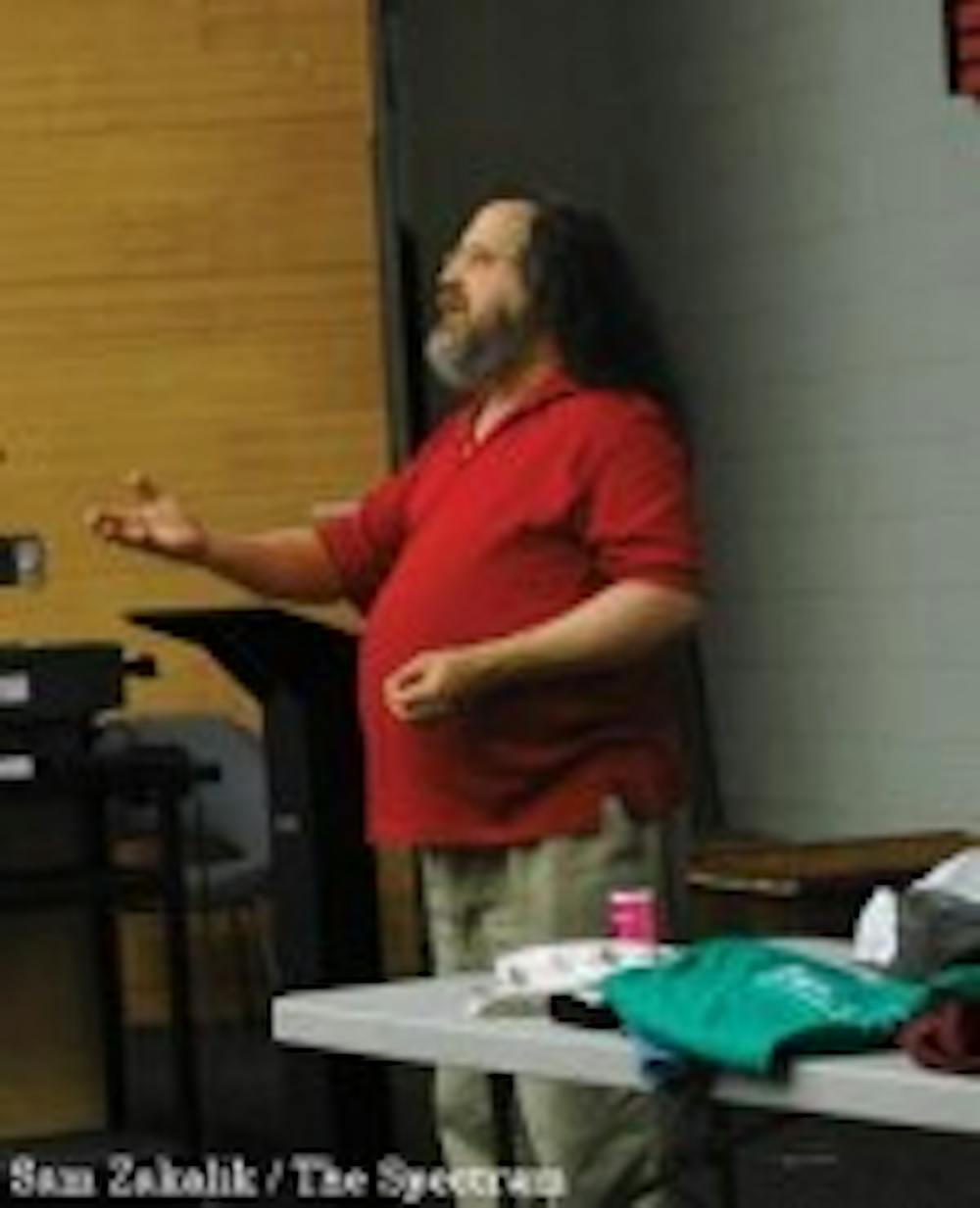Richard Stallman spoke to an eager crowd of UB students Monday night, bringing to them his message about free software and explaining what he feels are the evils of copyright law.
Stallman is well known for his position as the founder of the GNU Project and the Free Software Foundation. He is a long-term activist for free software and advocates against corporations who, he believes, stretch the copyright laws and software patents. He presented in Norton Hall on Monday about his first passion – free software.
Free software, as defined by Stallman, is as equal a right as free speech, and deserves the same attention and advocacy. It is not 'free' as in without cost to the consumer, but as a matter of liberty. The GNU Web site states that 'to understand the concept, you should think of ‘free' as in ‘free speech,' not as in ‘free beer.'
Stallman also states that free software has many layers to it and that four key freedoms should be applied to any software worth using.
The first freedom, referred to as Freedom 0, is the freedom to run the program for any purpose.
Freedom 1 is the freedom to study how the program works and adapt it to the user's needs. Access to the source code is a precondition for this.
Freedom 2 is the freedom to redistribute copies so users can help their neighbors.
The final freedom, Freedom 3, is the freedom for users to improve the program and release those improvements to the public, so that the whole community benefits.
Stallman applies these 'freedoms' to software that students use every day and warns those who do not follow these guidelines that they are at risk.
'Windows is extremely malicious software and allows the owners of that corporation to spy on you,' Stallman said. 'Apple is almost just as evil.'
He describes these evil features as Digital Restrictions Management and says that these products and corporations infringe on users' freedoms. His solution for this 'infringement' is to just not use the products at all.
Justin Kimber, a freshman psychology major, disagrees with this statement.
'I think that is [greatly] over-exaggerated,' Kimber said. 'I understand that there may be a privacy issue, but I think that the consumer should be aware of what they are buying and getting into with the product. I have a Mac and have never had a security issue. I find the features easy.'
Stallman told his audience that 'you should never touch any product that is designed to attack your freedom,' including any encrypted item, such as a DVD or CD, and to stay away from e-books and online bookstores such as Amazon. He says these Web sites and e-books have the power to record who accesses which books and to keep a record of personal purchases.
This is problematic, according to Stallman, because it infringes on privacy and freedom. He says that he would 'never purchase or accept as a gift an encrypted DVD,' and tries to set an example for those following him.
To give an example of companies that he feels are 'evil,' Stallman referred to Disney and its copyright extension on Mickey Mouse. He claims that this is a perfect example of a company bending copyright law to its own needs and ignoring the freedoms of the consumer.
Daniel Krysak, a graduate student in planetary geology, has been following Stallman for a while.
'I support him entirely. I've been a free software advocate since I was a kid,' Krysak said. 'I think everyone should be educated on it, and because of the topic, it won't be covered in mainstream media.'
'It gave me a new perspective and his presentation was interesting,' said Alisha Armstrong, a graduate student in media studies and sociology. 'I learned stuff I wasn't aware of.'
E-mail: news@ubspectrum.com
"Free software, free society"

More
Comments




